
READING AND WRITING
Scope & Guideline
Fostering Knowledge in Education and Linguistics
Introduction
Aims and Scopes
- Interdisciplinary Research on Literacy Development:
The journal publishes research that integrates cognitive psychology, linguistics, and education, addressing how various factors such as language proficiency, cognitive skills, and socio-economic status impact literacy outcomes. - Diverse Populations and Contexts:
It emphasizes studies that investigate literacy development in diverse linguistic and cultural contexts, including bilingualism, multilingualism, and specific learning difficulties, thereby contributing to a more inclusive understanding of literacy. - Focus on Instructional Strategies:
The journal prioritizes research on effective instructional practices and interventions for reading and writing, particularly those aimed at struggling learners and diverse educational settings. - Methodological Rigor:
It encourages robust methodological approaches, including longitudinal studies, randomized controlled trials, and meta-analyses, to provide evidence-based insights into literacy development. - Technological Integration in Literacy:
Research on the use of technology in literacy education, such as digital reading platforms and online writing tools, is a significant focus, exploring their impact on learning outcomes.
Trending and Emerging
- Impact of Socio-emotional Factors on Literacy:
There is a growing body of research exploring how socio-emotional factors, such as motivation, anxiety, and self-efficacy, influence reading and writing skills, emphasizing the importance of holistic education. - Multilingual and Cross-linguistic Studies:
Emerging themes focus on the complexities of literacy in multilingual contexts, examining how bilingual and multilingual learners navigate literacy challenges and the implications for instruction. - Cognitive and Neurological Perspectives:
Research incorporating cognitive science and neuroscience is increasing, providing insights into the cognitive processes underlying reading and writing, and informing effective instructional practices. - Technology-Enhanced Literacy Instruction:
The integration of technology in literacy education is a prominent trend, with studies investigating the effectiveness of digital tools and online platforms in supporting reading and writing development. - Equity and Accessibility in Literacy Education:
There is an increasing emphasis on equity and accessibility, with research addressing the literacy needs of marginalized populations and the effectiveness of interventions designed to support these groups.
Declining or Waning
- Traditional Reading Techniques:
There appears to be a waning interest in traditional reading instruction methods, such as phonics-focused approaches, as more researchers explore integrated and holistic literacy strategies. - Generalized Literacy Outcomes:
Research focusing solely on broad literacy outcomes without considering the nuanced factors influencing diverse populations has diminished, as the field moves toward more targeted studies. - Overemphasis on Single Language Studies:
The focus on single language literacy studies is declining, with a growing recognition of the importance of bilingual and multilingual perspectives in understanding literacy development. - Static Measurement Tools:
The use of static measurement tools for assessing literacy skills has decreased, as researchers are increasingly advocating for dynamic assessment methods that consider process over product. - Descriptive Studies without Intervention:
There has been a reduction in purely descriptive studies that do not propose interventions or instructional strategies, reflecting a shift towards research that aims to inform practice.
Similar Journals
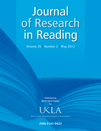
JOURNAL OF RESEARCH IN READING
Exploring the depths of reading and cognition.JOURNAL OF RESEARCH IN READING, published by Wiley, stands as a premier scholarly platform dedicated to advancing the understanding of reading research within the disciplines of education and psychology. Established in 1978, this impactful journal offers rigorous peer-reviewed articles that explore the multifaceted nuances of reading processes, literacy development, and instructional strategies, making it an essential resource for educators, psychologists, and researchers alike. With an impressive Q1 ranking in developmental and educational psychology, education, and miscellaneous psychology categories, and notable positions in Scopus rankings, the journal maintains a strong reputation for the quality and relevance of its contributions to the field. Although it operates under a traditional subscription model, the journal ensures broad access to its vital research findings, supporting the ongoing dialogue in an ever-evolving academic landscape. As it approaches its landmark 2024 edition, JOURNAL OF RESEARCH IN READING continues to serve as a vital conduit for innovative research and critical insights into literacy and reading education.
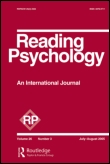
Reading Psychology
Innovating Educational Techniques Through Reading ResearchReading Psychology, published by Routledge Journals, Taylor & Francis Ltd, is an esteemed journal dedicated to exploring the multifaceted relationship between reading processes and psychological principles. Since its establishment in 1979, this journal has provided a crucial platform for researchers, educators, and psychologists, addressing pivotal themes in Developmental and Educational Psychology, Education, and Linguistics and Language. With a commendable impact factor and a robust ranking within Scopus across multiple categories, including Q1 in Linguistics and Language, Reading Psychology plays an indispensable role in advancing scholarly discourse. Although it currently does not provide Open Access options, it remains a vital source of innovative research that informs theory and practice. The journal aims to cultivate a deeper understanding of reading behaviors, foster interdisciplinary collaboration, and ultimately enhance educational techniques, making it essential reading for anyone committed to the study of reading and cognition.
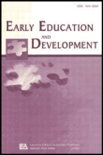
Early Education and Development
Empowering Educators with Cutting-Edge InsightsEarly Education and Development is a prestigious journal published by Routledge Journals, Taylor & Francis Ltd, dedicated to advancing the field of early childhood education and developmental psychology. With an ISSN of 1040-9289 and an E-ISSN of 1556-6935, this journal has garnered an impressive reputation, achieving a Q1 ranking in both Developmental and Educational Psychology as well as Education as of 2023. Its influence is reflected in its Scopus rankings, standing at #236 out of 1,543 in Social Sciences (Education) and #83 out of 360 in Psychology (Developmental and Educational Psychology), positioning it in the 84th and 77th percentiles, respectively. Operative since 1989, Early Education and Development serves as a vital resource for researchers, educators, and policymakers by publishing cutting-edge research, theoretical frameworks, and practical applications that shape early educational practices globally. Though it does not currently offer open access options, its contributions remain essential for those looking to stay abreast of the latest developments and best practices in early education.
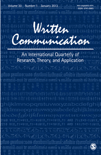
WRITTEN COMMUNICATION
Transforming Perspectives on Writing and CommunicationWRITTEN COMMUNICATION is a premier interdisciplinary journal published by SAGE Publications Inc, dedicated to advancing the understanding of communication through writing. With a strong reputation in the field, this journal holds an impressive impact factor, reflecting its significant contribution to the realms of both Communication and Literature and Literary Theory, where it proudly ranks in the top quartile (Q1) according to the 2023 category rankings. The journal's rigorous scholarly articles offer insights into the theoretical, practical, and sociocultural dimensions of written communication, making it an essential resource for researchers, professionals, and students alike. With coverage spanning from 1984 to 2024, WRITTEN COMMUNICATION promotes critical discussions and innovative perspectives, shaping the landscape of writing studies. For those interested in exploring the complexities of writing as a communicative act, this journal serves as a vital platform for academic discourse and discovery.
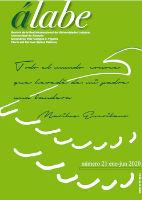
Alabe-Revista de Investigacion sobre Lectura y Escritura
Unlocking the potential of reading and writing research.Alabe-Revista de Investigacion sobre Lectura y Escritura is a prestigious academic journal published by Universidad de Almería, dedicated to the exploration and advancement of literacy studies and writing research. Established as an Open Access journal since 2010, it is committed to providing a platform for innovative research and interdisciplinary discussions that span linguistic, educational, and psychological perspectives on reading and writing. With a focus on enhancing pedagogical practices and fostering literacy development in diverse contexts, Alabe aims to bridge the gap between academic scholarship and practical application. Researchers, educators, and students alike will find this journal's critical insights and scholarly contributions to be invaluable resources for deepening their understanding of reading and writing processes. Through its connections with academic networks and commitment to high-quality research outputs, Alabe plays an essential role in shaping the future of literacy studies.
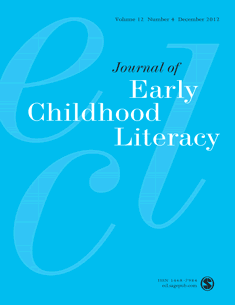
Journal of Early Childhood Literacy
Shaping the Future of Early Literacy ResearchJournal of Early Childhood Literacy, published by SAGE PUBLICATIONS LTD, is a leading international journal dedicated to the exploration and dissemination of research in the field of early childhood literacy. With a robust impact factor and a distinguished ranking in the Q1 category of Education, this journal is at the forefront of publishing innovative studies and theoretical frameworks that shape literacy practices and policies for young learners. Operating from its base in the United Kingdom, it serves as a crucial platform for researchers, educators, and practitioners alike, providing insights into literacy development, pedagogical strategies, and the socio-cultural contexts affecting literacy acquisition. Researchers can access a wealth of articles that reflect the journal’s commitment to advancing knowledge and understanding in early childhood literacy, making it an essential resource for anyone dedicated to fostering literacy in the formative years. The journal has consistently maintained a strong reputation, ranking in the top 82nd percentile among its peers in Social Sciences - Education according to Scopus metrics. Engage with the vibrant discourse and contribute to the evolving landscape of early literacy by exploring the latest findings published in the Journal of Early Childhood Literacy.
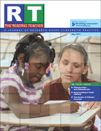
READING TEACHER
Innovating literacy education for a brighter future.READING TEACHER is a premier journal dedicated to the field of literacy and language education, published by Wiley. With a robust impact factor and a distinguished Q1 ranking in Linguistics and Language, this highly regarded journal serves as an essential resource for educators, researchers, and students aiming to enhance reading instruction and literacy development. The journal covers a broad range of topics within the domain of language and literacy, offering insights into innovative teaching methodologies, research on reading behaviors, and best practices for educational engagement. As the field continues to evolve, READING TEACHER remains committed to advancing scholarship through rigorous peer-reviewed research. Researchers and practitioners can access articles from the journal to stay updated on the latest findings and trends shaping literacy education. For those engaged in the critical study of language acquisition and reading instruction, READING TEACHER is an invaluable part of their academic journey.
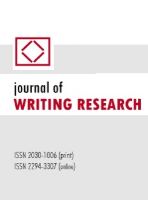
Journal of Writing Research
Bridging Theory and Practice in WritingThe Journal of Writing Research, published by the University of Antwerp, is an esteemed academic journal dedicated to advancing the field of writing research through rigorous scholarship and innovation. With an ISSN of 2030-1006 and E-ISSN 2294-3307, this Open Access journal has been fostering global dialogue and exploration in writing studies since 2008. It resides in the heart of Belgium, reflecting a commitment to multilingualism and diverse writing practices. Recognized for its high impact within the academic community, the Journal holds a Q1 quartile ranking in Education, Linguistics and Language, and Literature and Literary Theory as of 2023, with impressive Scopus ranks placing it in the top tiers of related disciplines. Aiming to bridge theory and practice, this journal serves as a vital resource for scholars, practitioners, and students interested in the intricate dynamics of writing, offering an inclusive platform for the latest research and interdisciplinary discussion. Emphasizing accessibility and engagement, the Journal of Writing Research stands out as an essential outlet for contemporary writing scholarship.

TESL Canada Journal
Elevating ESL Pedagogy with Groundbreaking ResearchTESL Canada Journal, published by TESL Canada, serves as a vital resource for researchers, educators, and practitioners in the field of English as a Second Language (ESL) and applied linguistics. With its commitment to advancing scholarship and best practices in language education, this esteemed journal fosters a platform for the dissemination of high-quality research and innovative pedagogical approaches. Although it operates without open access, its comprehensive articles and reviews offer valuable insights into current trends and challenges faced by ESL educators across Canada and internationally. The journal is dedicated to promoting a deeper understanding of language acquisition processes and instructional methodologies, contributing significantly to the professional development of its readership. Located in Burnaby, Canada, the journal aims to bridge the gap between theory and practice, making it an indispensable source for educators and researchers looking to enhance their expertise in ESL education.

Ocnos-Journal of Reading Research
Innovating Research to Inspire Future ReadersOcnos-Journal of Reading Research is a leading peer-reviewed journal dedicated to advancing the field of reading research, with a specific focus on literature, education, and psychological aspects of reading. Published by UNIV CASTILLA-LA MANCHA, CENTRO ESTUDIOS PROMOCION LITERATURA INFANTIL, this open-access journal, available since 2005, aims to provide a platform for innovative studies, critical reviews, and educational resources that inform and inspire scholars, practitioners, and students alike. With an impressive positioning in the Q2 category in Education and Q1 in Literature and Literary Theory as of 2023, it is recognized for its high impact in these disciplines, evidenced by its strong rankings within Scopus. Situated in Cuenca, Spain, Ocnos fosters international dialogue and research collaboration, making it a vital resource for those engaged in the exploration of reading as a multifaceted phenomenon. Whether you are interested in theoretical frameworks or practical applications, Ocnos offers invaluable insights that contribute to the field's evolution and understanding.